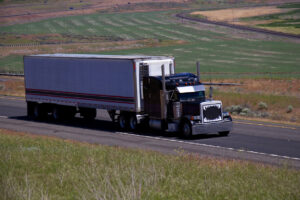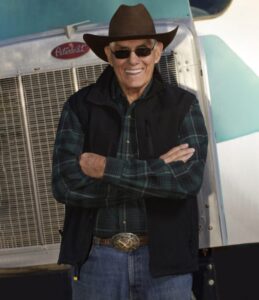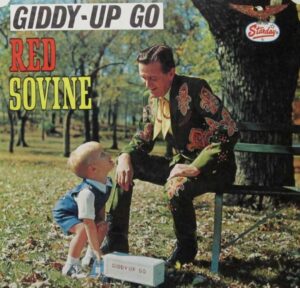The COVID-19 crisis isn’t the type of tunnel a nation enters with expectations of an ever-brightening light ahead. After all, an enemy with the ability to kill millions and destroy the global economy isn’t something a nation can look beyond. But in terms of the trucking industry and its executives, drivers and support personnel, history may view the current crisis as a turning point. 2020 could go down as the year truck drivers attained a status similar to what first responders received after 9/11 — heroes, or at least doers of heroic deeds.
The shift in public opinion has been a long time coming. Not since the 1970s, when public opinion of truckers was based more on myth than reality, have truck drivers been as popular as they are today. Crisis situations tend to pull the veil from decades of misconceptions and negative publicity.
Public-opinion surveys as recent as last October deemed tractor-trailers and their drivers as menaces of highways. But as the COVID-19 crisis spread, anecdotal evidence sprung up signaling a change of opinion. The vital role the trucking industry plays in the nation’s economy shone brightly, and Americans have recognized it. Billboards offering thanks to truckers have popped up along interstates and highways, and testaments of drivers being personally thanked by strangers are numerous. Small businesses are even making special efforts to ensure drivers have what they need to keep them safe as they make the deliveries that will help save the economy.
An early April White House ceremony sang the praises of truck drivers. President Trump stated that “America’s truck drivers are the foot soldiers carrying us to victory,” a reference to the many drivers working seven days a week to complete deliveries of essential freight.
Ultimately, if the trucking industry is truly to be thanked for its efforts, the evidence may first be seen in the legal system, where juries have increasingly returned “nuclear” verdicts against the industry.
Americans aren’t known for their sympathies for insurance companies. After all, dealing with an insurance company can bring 10 times the aggravation of being involved in a car accident. When the insurer does meet its obligations, it frequently sends its “thank you” in the form of a skyrocketing premium or outright cancellation of a policy. Insurance companies are not blameless in the high costs of driving a vehicle, and they share the blame for the crippling premiums truck drivers and carriers pay to fulfill their “heroic” roles. Still, insurance companies increase premiums to remain viable, cover costs and turn a profit.
Maintaining the benefits insurers once provided for their customers became more difficult when personal-injury lawyers factored into the equation. Their ability to convince juries to return “nuclear” verdicts against the trucking industry played no small role in building the negative public opinion of the trucking industry in recent decades.
The hundreds of personal-injury lawyer billboards lining the roadways of any large American city are hard to miss. For every billboard thanking truck drivers, a hundred continue to encourage motorists to speed to the nearest law firm if they have even a minor run-in with a tractor-trailer.
The personal-injury attorneys specializing in incidents involving trucks on the highways are masters at twisting information and statistics to convince motorists and juries that trucks are the bane of highway traffic. Take for instance the statistics involving rear-end collisions. When a rear-end collision happens, fault is seldom placed on the leading vehicle or its driver. After all, it’s a matter of following distance. If the proper distance is maintained, the trailing vehicle’s driver will be able to stop before hitting the lead vehicle. The basic safety measure is as sure as the law of gravity, and every state has traffic laws against “following too close.”
A personal-injury attorney is skilled at convincing a jury that a traffic law that’s almost as sure as the law of gravity does not apply in the case of a rear-end collision involving injury or death. The attorney’s arguments deem basic traffic laws insignificant; in fact, any actions of the lead vehicle’s driver are immaterial. And the arguments can result in the type of nuclear verdicts that juries are returning with increasing frequency.
The tactics an attorney uses to reverse fault in the case of a rear-end collision are simple. One law firm, known to motorists for its countless billboards vilifying tractor-trailers, openly explains the approach on its website. Fault in such an accident, according to what is posted on the firm’s site as of April 17, 2020, does not rest with either driver; instead, the vehicle itself is at fault. For instance, if the tractor-trailer was equipped with “truck under ride guards” (TUG), shields intended to prevent vehicles from becoming trapped beneath a trailer, the number of accidents involving injuries or fatalities would plummet. Currently, the website claims that federal safety standards require TUGs on trucks weighing over 10,000 pounds. But it also states that the FMCSA is considering strengthening requirements to include TUGs on the front, rear and sides of all trucks. In other words, the attorney’s argument is that the law does not necessarily require TUGs in all situations, but it should. That’s enough for juries to return large judgments in favor of the plaintiffs.
While insurance companies are busy defending lawsuits against freight carriers, the seemingly improved public image of truck drivers on jury verdicts remains to be seen. In July 2019, Rep. Matt Cartwright
(D-Penn.) introduced a bill that would increase the minimum liability insurance a trucking company must carry from $750,000 to $4.5 million, an increase of 500%. If passed, the bill would force many small carriers to cease operations under the weight of increasing insurance premiums.
To date, Rep. Cartwright’s bill has not gained traction, possibly in part to Rep. Cartwright history as an attorney with a reputation for suing freight carriers. His family still operates a law firm, so in debate, the question of conflict of interest would weigh heavily on the bill’s chances of advancing. For many, Rep. Cartwright’s bill will be viewed as a means of providing “reptile” attorneys access to the riches held in every tractor-trailer on the road — rolling ATM machines, if you will. Then again, the public already has negative perceptions of personal-injury lawyers, yet jurors still return nuclear verdicts rewarding their efforts.
Secretary of Transportation Elaine Chao said at the White House event honoring truck drivers, “Truckers are playing a heroic role in helping America cope during this crisis and will play a critical role in economic recovery.”
It is too soon to determine the impact of the public’s sudden and dramatic positive view of truck drivers in the past several weeks. But with government officials and business owners lauding them as heroes, will juries continue to view the industry a rolling ATM machine?
For the time being, those monitoring the tractor-trailer versus personal-injury-attorney battle may find counting billboards to be the most accurate barometer.
[Photo Credit: AP Photo: Matt York]
Since retiring from a career as an outdoor recreation professional from the State of Arkansas, Kris Rutherford has worked as a freelance writer and, with his wife, owns and publishes a small Northeast Texas newspaper, The Roxton Progress. Kris has worked as a ghostwriter and editor and has authored seven books of his own. He became interested in the trucking industry as a child in the 1970s when his family traveled the interstates twice a year between their home in Maine and their native Texas. He has been a classic country music enthusiast since the age of nine when he developed a special interest in trucking songs.












As long as incompetent , unhealthy , untrained truck drivers driving overweight, mechanically unsafe trucks at excessive speeds , doctoring their log books, cause unmitigated slaughter of innocents on the roadways, lawsuits with huge jury verdicts will be the norm.
You are talking about the exception rather than the norm. Most truck drivers and trucking companies are good, hard-working people that help supply basically everything in your life. It is a fact that most accidents involving trucking companies are caused by the other drivers on the road, not the truck driver. So dial back the rhetoric and go spend some time with truckers to gain a different perspective. The ones that are blatantly disregarding the rules certainly should be punished for doing so and there are processes in place for identifying and addressing these companies and drivers.